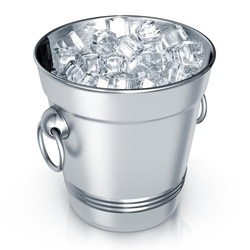
ALS has clearly profited from this campaign that began as a way for golfers to raise money for assorted charities and any group that garnered that kind of attention could be expected to “press its luck” to find more success. This may have been the motivating factor behind the ALS Association’s decision earlier this month to file trademarks applications in the U.S. for the phrase “Ice Bucket Challenge” for services related to charitable giving. Is this attempt to capitalize on a wave of attention and recognition enough to throw ice water on charitable motives? Some of my fellow members of the bar seem to think so. Erik Pelton, a trademark attorney in the Washington D.C. area thinks that the attempt by ALS is a move that will prevent other people from using the trademark for charitable drives.
As we all know, if a proposed mark is not inherently distinctive (meaning that it cannot communicate the source of the product or service instantaneously to a consumer) then the owner of the mark has to prove that the mark has become distinctive as applied to the relevant goods or services. One of the easiest ways to prove distinctiveness is by showing that a particular trademark has been used substantially and consistently in commerce for a period of time. Substantial and consistent use must be for such a length of time (usually no less than 5 years) and must be in such a way that consumers equate the owner of the trademark with the producer itself.
Can a mark that has been in use for a period of only 3 months, and not entirely used exclusively to refer to ALS, have acquired the secondary meaning necessary to be considered distinctive? The sticky issue here is the length of use. If the mark “ice bucket challenge” is found to be descriptive of charitable activities, then ALS will need to come up with evidence showing that the mark has been used for more than a few months. The problem here is that the ALS ice bucket challenge was born as a phenomenon on social media and has gone viral. As this article points out, internet users are notoriously fickle and have short attention spans. With this premise, some have measured the lifespan of viral events and found that viral content or trends on the internet (like many other things) have lifespans. If internet users lose interest in a particular video or trend, it can die on the vine (like the whole Harlem Shake craze of 2013).
Just as Harlem Shake dance videos proliferated in 2013, so too does Summer 2014 seem like the summer of the ice bucket challenge. After everyone and their brother (and their brother’s friends sister’s cousin’s friend) have done the ice bucket challenge, will there be anyone left to make these videos? Will “ice bucket” even be synonymous in people’s minds with ALS? Is the value of the phrase “ice bucket challenge” in the brand itself or more the fact that the video went viral, generating lots of donations? Without “yes” answers to both of these questions, ALS may be facing an uphill battle in trying to generate the kind of consumer recognition necessary to get a trademark in “ice bucket challenge”.
Update – September 1, 2014: Apparently, ALS has decided to scrap its plans to obtain a trademark registration for ICE BUCKET CHALLENGE. Undoubtedly, it was because of this blog post (end sarcasm).


 RSS Feed
RSS Feed